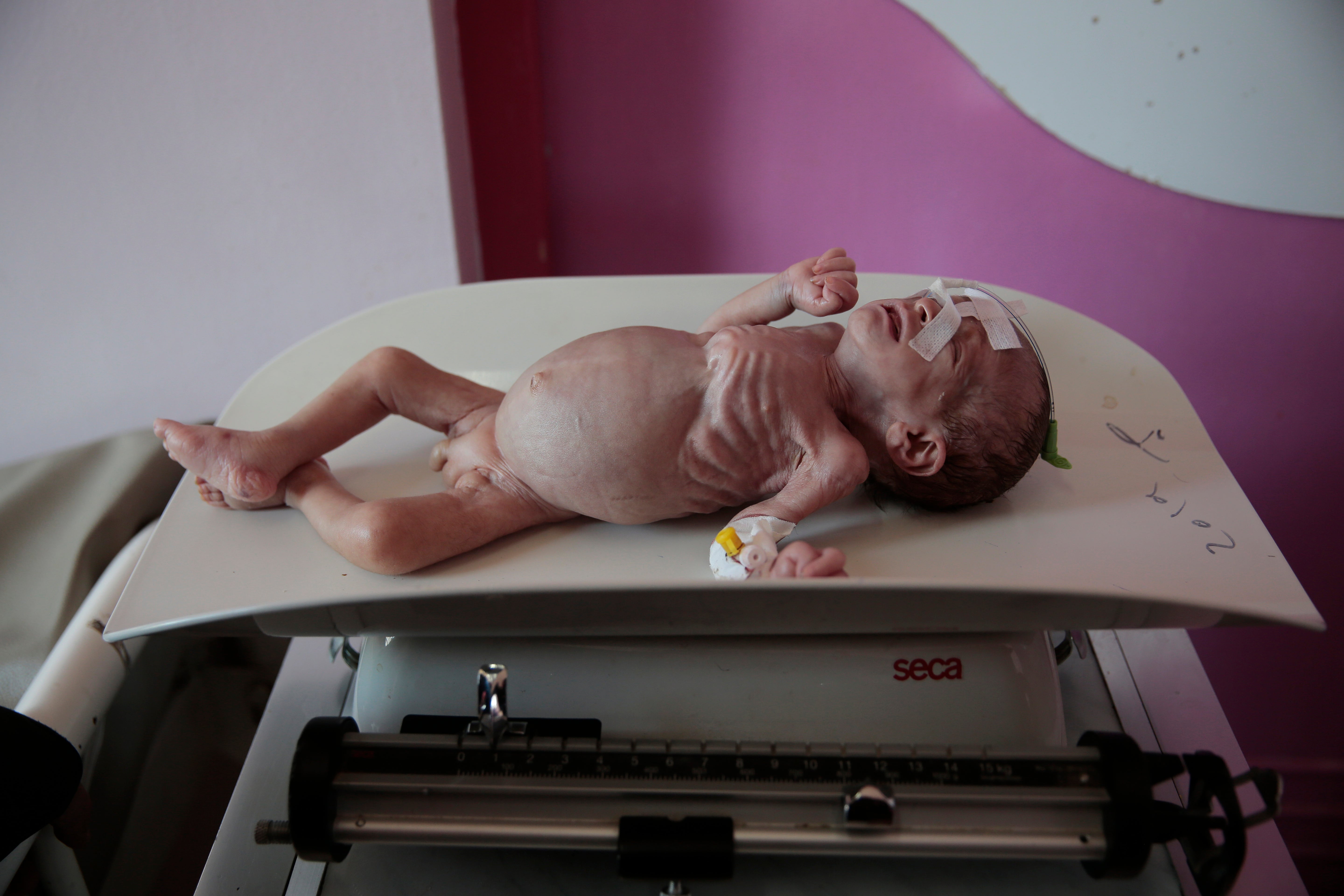'Harrowing figures': Yemen report says 161K to face famine
More than a dozen U.N. agencies and international aid groups say that 161,000 people in war-torn Yemen are likely to experience famine over the second half of 2022

Your support helps us to tell the story
From reproductive rights to climate change to Big Tech, The Independent is on the ground when the story is developing. Whether it's investigating the financials of Elon Musk's pro-Trump PAC or producing our latest documentary, 'The A Word', which shines a light on the American women fighting for reproductive rights, we know how important it is to parse out the facts from the messaging.
At such a critical moment in US history, we need reporters on the ground. Your donation allows us to keep sending journalists to speak to both sides of the story.
The Independent is trusted by Americans across the entire political spectrum. And unlike many other quality news outlets, we choose not to lock Americans out of our reporting and analysis with paywalls. We believe quality journalism should be available to everyone, paid for by those who can afford it.
Your support makes all the difference.More than a dozen U.N. agencies and international aid groups said Monday that 161,000 people in war-torn Yemen are likely to experience famine over the second half of 2022 — a fivefold increase from the current figure.
The stark warning came in a report by the Integrated Food Security Phase Classification, or IPC, ahead of an annual fund-raising conference that the United Nations is hosting on Wednesday. The IPC is a global partnership of 15 U.N. agencies and humanitarian organizations working in Yemen and funded by the European Union, the USAID and UKAID. It tracks and measures food insecurity in conflict-stricken regions.
The report underscores the dire situation in the poorest Arab nation that plunged into civil war for in 2014, when Yemen's Iran-backed Houthi rebels took control of the capital, Sanaa, and much of the country’s north, forcing the government to flee to the south, then to Saudi Arabia.
A Saudi-led coalition entered the war in March 2015, backed at the time by the U.S., in an effort to restore the internationally recognized government to power. The war has deteriorated largely into a stalemate and caused one of the world's worst humanitarian crises.
“These harrowing figures confirm that we are on a countdown to catastrophe in Yemen and we are almost out of time to avoid it,” said David Beasley, head of the World Food Program, appealing for immediate funding to “avert imminent disaster and save millions.”
The IPC report says 19 million people in Yemen — out of a population of more than 30 million — are likely to unable to meet their minimum food needs between June and December, up from 17.4 million.
Also, 2.2 million children, including 538,000 already severely malnourished, and about 1.3 million women, could be acutely malnourished by the end of the year, the report said.
“More and more children are going to bed hungry in Yemen,” said Catherine Russell, UNICEF's executive director. “This puts them at increased risk of physical and cognitive impairment, and even death.”
The report stressed the war in Yemen is the main driver of hunger and the crisis is likely to deteriorate due to the war in Ukraine. Yemen depends almost entirely on food imports, with 30% of its wheat imports coming from Ukraine, the U.N. agencies said.
“Peace is required to end the decline, but we can make progress now. The parties to the conflict should lift all restrictions on trade and investment for non-sanctioned commodities,” said David Gressly, the U.N. humanitarian coordinator for Yemen.